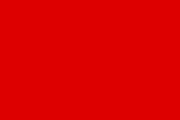|
Russian Social Democratic Labour Party (of Internationalists)
The Russian Social Democratic Labour Party (of Internationalists) (Russian: Российской социал-демократической рабочей партии (интернационалистов)), initially known as the United Social Democrats-Internationalists, was a political party in Russia. The programme of the group was largely similar to that of the Menshevik-Internationalists, and politically it placed itself between the Menshevik-Internationalists and the Bolsheviks.[1] They were critical of Bolshevik tactics but would remain supportive of the Soviet government.[1] They were a relatively small organization of leftist intellectuals, largely identified with its newspaper Novaya Zhizn ('New Life').[2][1] Whilst the group was quite small, Novaya Zhizn had a significant readership.[1] It was published by the well-known author Maxim Gorky, although Gorky broke with the party in July 1917.[2] Gorky had been the only prominent figure in the organization.[1] In December 1917 Solomon Lozovsky was expelled from the Bolshevik Party, after which he joined the Russian Social Democratic Labour Party (of Internationalists) and became its main leader.[3][4] In March 1918 he became the party chairman.[5] He also edited the new party organ Proletarii ('Proletarian').[5] In May 1918 the party underwent a split, with a minority group (who favoured closer relations with the Bolsheviks) broke away and formed their own group.[5] At the Second All Russian Trade Union Congress in January 1919, the party delegation supported the call for unions independent from the Communist Party.[4][6] In April 1919, the minority that had split in 1918 reunited with the party.[5] The party adopted the name Russian Social Democratic Labour Party and took a more conciliatory approach towards the Bolsheviks.[5] The 4th congress of the party decided to dissolve the party and called on its membership to join the Communist Party.[4] In December 1919 Lozovsky was readmitted to the Communist Party.[3] Soviet historiography labelled the party as "the far left of the petty bourgeoisie", arguing that the party had a contradictory position in calling for a socialist government whilst rejecting the notion of an armed uprising.[2] References
|
||||||||||||||||||
